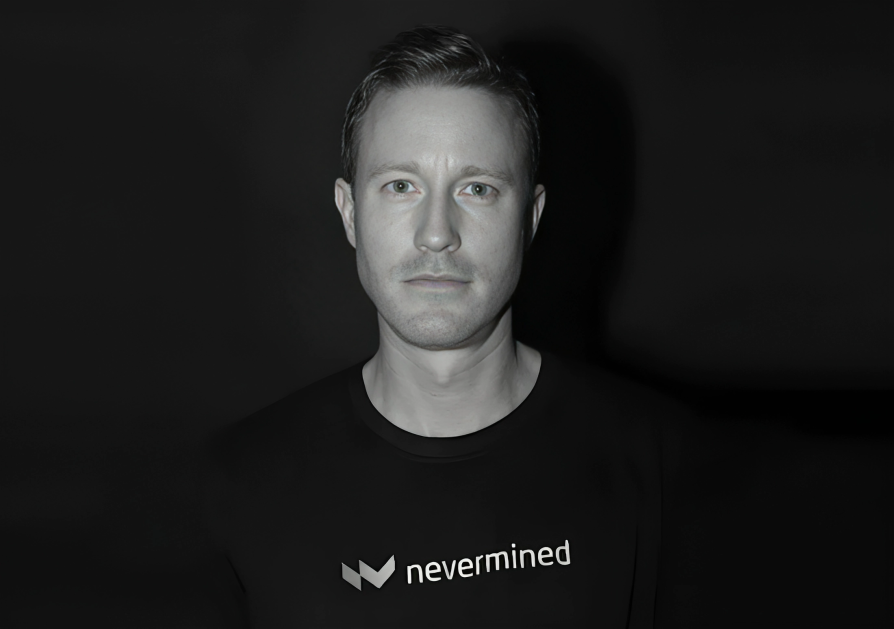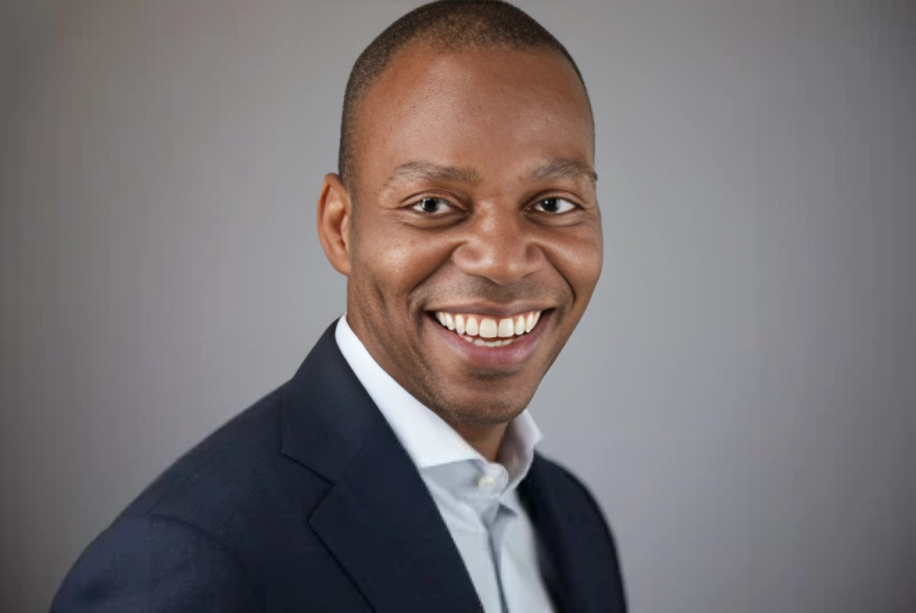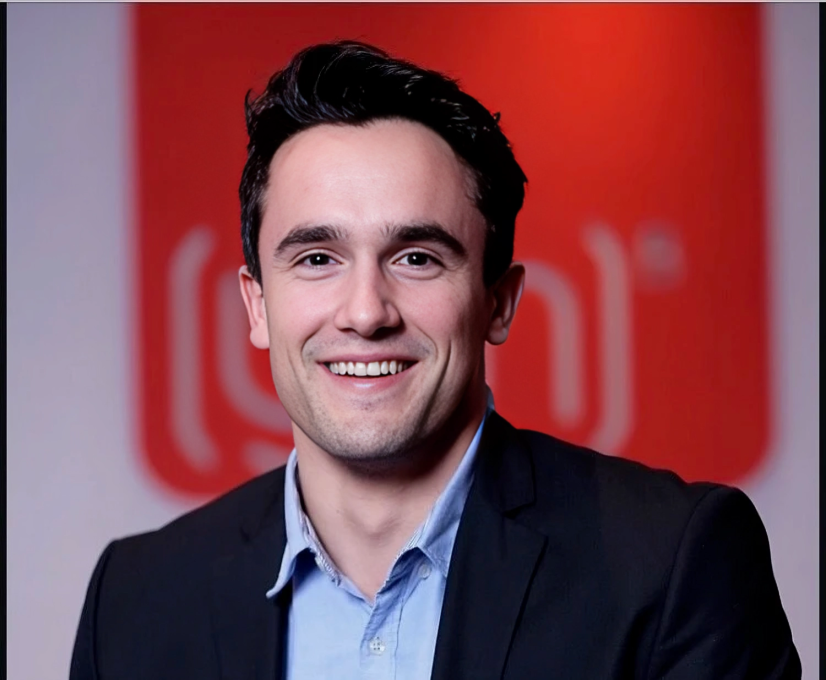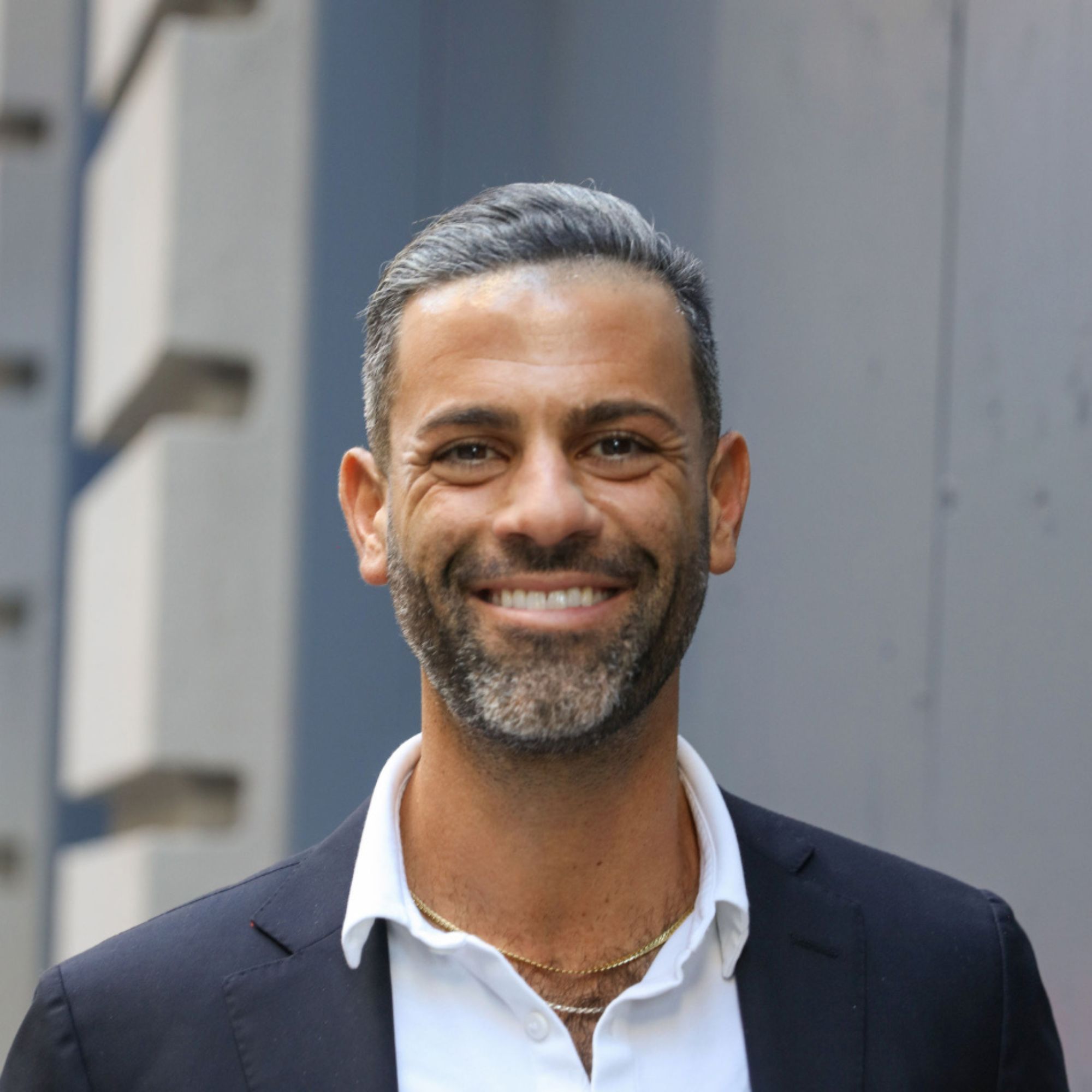Ready to build your own Founder-Led Growth engine? Book a Strategy Call
Frontlines.io | Where B2B Founders Talk GTM.
Strategic Communications Advisory For Visionary Founders
Actionable
Takeaways
Identify Regulatory Tailwinds:
By focusing on the emerging need for AI governance driven by regulations like the EU AI Act, Breeze ML was able to position itself as a critical solution for companies seeking to achieve compliance and avoid hefty fines. Founders should look for similar regulatory tailwinds that can create urgency and demand for their products.
Validate the Problem Through Diverse Conversations:
Harry and his team engaged in numerous conversations with stakeholders across different roles and industries to validate the need for AI governance and identify the most pressing pain points. By casting a wide net and listening closely to potential customers, founders can ensure that they are solving a real and significant problem.
Be Prepared to Pivot Based on Market Feedback:
While many companies rushed to capitalize on the hype around large language models, Breeze ML chose to focus on the broader and more enduring challenge of AI governance based on the insights gained from their customer conversations. Founders must be willing to pivot their strategies based on market feedback, even if it means deviating from the latest trends.
Pave the Way for Fundraising Success:
Harry emphasizes the importance of preparing for fundraising well in advance by assembling a strong team, clearing potential IP issues, conducting customer surveys, and building an MVP. By laying this groundwork early, founders can increase their chances of securing investment when the time is right.
Aim for Category Leadership in Multiple Markets:
Breeze ML's long-term vision is to become the leading AI governance platform in both the US and EU markets, recognizing the global nature of the problem they are solving. Founders should similarly aim to establish category leadership across multiple geographies to maximize their impact and growth potential.
Conversation
Highlights
From Academia to AI Governance: How Breeze ML is Building the Infrastructure for Responsible AI
Most founders chase the obvious opportunities. When ChatGPT exploded onto the scene, countless startups rushed to build the next great language model. But in a recent episode of Category Visionaries, Harry Xu revealed why Breeze ML took the opposite approach, stepping back from the LLM gold rush to tackle a more fundamental challenge: AI governance.
The Contrarian Bet
“As everybody was all in for LLMs, we kind of backed out,” Harry explains. This wasn’t a decision made in isolation – it came from extensive customer discovery. “I just talked to a lot of people. I had tons of conversations with people doing different things in different roles… data scientists… machine learning engineers… VP of engineering… compliance officers… CTOs, CEOs.”
These conversations revealed a critical insight: while everyone was focused on building AI models, nobody was solving the governance problem that would soon affect every AI company. “We clearly saw governance is a bigger problem in years to come,” Harry notes.
The Regulatory Tsunami
The urgency isn’t theoretical. “The EU AI act is already there, and then they’re looking to finalize the law by the end of this year, and then that’s going to come into effect in the year of 2025,” Harry explains. Companies that aren’t prepared face existential risks: “We’re talking about like a huge fine, something like 6% of your annual global revenue, like uncapped.”
Building in Uncharted Territory
The challenge Breeze ML faces is unique: they’re building for a market that exists but hasn’t been defined. “People don’t know what to do yet,” Harry admits. “There are very few tools out there that can help them provide the governance that need.”
Even the experts are still figuring it out. “We talked to a lot of lawyers and privacy attorneys… everybody was talking about auditing AI, auditing models. But in terms of concrete steps, the action items, nobody had a good idea of what to audit.”
This ambiguity creates both challenges and opportunities. While it makes the sales cycle longer, it also means Breeze ML has the chance to define the category. They’re focusing on enterprise sales, building relationships with companies that will soon need these tools to operate legally.
The Go-to-Market Evolution
For founders navigating similar uncertain waters, Harry’s approach offers valuable lessons. Rather than trying to create demand, they’re positioning themselves ahead of inevitable regulatory requirements. Some sectors are already feeling the pressure: “Healthcare is the industry that is facing regulations from FDA… The banks are facing very strict regulations and compliance from SEC.”
This regulatory pressure creates natural entry points. Instead of trying to serve everyone immediately, Breeze ML can focus on sectors where the need is most acute and expand from there.
Building for the Long Game
The vision is clear: “We’ll be the leading platform in AI governance for both the US and EU market,” Harry states. But getting there requires careful timing and preparation.
His key advice for founders? “If I start the signal one more time… I will start paving the road a year before we see the investors, including, for example, assemble the team, clear out the potential IP issues, do the customer survey and then get MVP build.”
This level of preparation becomes especially crucial when building in an emerging category. Without established playbooks to follow, founders need to be even more methodical in their approach.
For B2B tech founders, Breeze ML’s journey offers a masterclass in category creation. While others chase today’s trends, they’re building the infrastructure for tomorrow’s requirements. It’s a reminder that sometimes the biggest opportunities lie not in the technology itself, but in making that technology viable at scale.
Recommended Founder
Interviews


Jorge Penalva
CEO & Co-Founder of Lang AI
Jorge Penalva, CEO of Lang.ai: $40 Million+ Raised to Build the Customer Experience Operations Category


Jonathan Dambrot
CEO and Founder of Cranium
Jonathan Dambrot, CEO and Founder at Cranium: $32 Million Raised to Power the Future of AI Security


Tanay Kothari
CEO and Co-Founder of Wispr Flow
How Wispr Flow manufactured viral moments by personally onboarding 500 users on Google Meet | Tanay Kothari ($56M Raised)


Douwe Kiela
CEO and Co-Founder of Contextual AI
Douwe Kiela, CEO and Co-Founder of Contextual AI: $20 Million Raised to Build the Future of Enterprise Language Models


Patricia Thaine
Co-Founder & CEO of Private AI
Patricia Thaine, Co-Founder & CEO of Private AI: Over $11 Million Raised to Help Organizations Anonymize PII to Achieve Regulatory Compliance


Malte Pietsch
CTO & Co-Founder of Deepset
Malte Pietsch, CTO & Co-Founder of Deepset: $45 Million Raised to Build the Future of LLMs

Krishna Gade
CEO & Founder of Fiddler
Krishna Gade, CEO & Founder of Fiddler: $68 Million Raised to Build the Future of AI Observability


James O’Brien
Co-Founder & COO of Ducky AI
James O’Brien, Co-Founder & COO of Ducky: $2.7 Million Raised to Build Internal Data Search for LLMs


Gabriel Bayomi Tinoco Kalejaiye
CEO and Co-Founder of Openlayer
Gabriel Bayomi, CEO and Co-Founder of Openlayer: $4.8 Million Raised to Power the Future of Machine Learning Testing

William Gaviria Rojas
Field CTO & Co-Founder of CoactiveAI
William Gaviria Rojas, Field CTO & Co-Founder of CoactiveAI: $44 Million Raised to Build the Future of Multimodal AI Applications


Krish Ramineni
CEO of Fireflies
Krish Ramineni, CEO of Fireflies: $19 Million Raised to Build the Future of AI Meeting Assistants


Johannes Peeters
Co-Founder & CEO of VoxelSensors
Johannes Peeters, Co-Founder & CEO of VoxelSensors: $7 Million Raised to Build the Future of Spatial Computing

Davit Baghdasaryan
Co-Founder and CEO of Krisp
Davit Baghdasaryan, Co-Founder and CEO of Krisp: $19 Million Raised to Build the Voice Productivity Category


Nikola Borisov
CEO & Co-Founder of Deep Infra
Nikola Borisov, CEO & Co-Founder of Deep Infra: $9 Million Raised to Build the Future of AI Model Hosting


Richard Potter
Co-Founder and CEO of Peak
Richard Potter, Co-Founder and CEO at Peak: $118 Million Raised to Power the Future of AI-Enabled Businesses

Alex Levin
CEO & Co-Founder of Regal AI
Alex Levin, CEO & Co-Founder of Regal AI: $82 Million Raised to Transform Customer Communication with Voice AI


Amr Awadallah
CEO & Founder of Vectara
Amr Awadallah, CEO & Founder of Vectara: $53 Million Raised to Build the RAG-as-a-Service Category

David Reger
CEO of NEURA Robotics
David Reger, CEO of NEURA Robotics: €185M Raised to Power the Future of Cognitive Robotics


Ashley Montanaro
CEO and Co-Founder of Phasecraft
Ashley Montanaro, CEO & Co-Founder of Phasecraft: $22 Million Raised to Build the Future of Quantum Software

Kostas Pardalis
Co-Founder & CEO of Typedef
Why Typedef starts go-to-market activities during the design partner phase instead of after | Kostas Pardalis ($5.5M Raised)


Joe Witt
CEO & Co-Founder of Datavolo
Joe Witt, CEO & Co-Founder of Datavolo: $21 Million Raised to Unlock the Potential of Unstructured Data for AI


Sumanyu Sharma
CEO & Founder of Hamming AI
How Hamming AI accidentally created a new category by focusing on customer problems instead of category creation | Sumanyu Sharma ($3.8M Raised)


Inna Sela
CEO & Founder of illumex
Inna Tokarev Sela, CEO & Founder of illumex: $13 Million Raised to Power the Future of Enterprise LLM Deployments


Ryan Sevey
CEO of Mantium
Ryan Sevey, CEO of Mantium: $12 Million Raised to Help Teams Deploy and Monitor their AI Process Automations


Meryem Arik
CEO & Co-Founder of Titan ML
Meryem Arik, CEO and Co-Founder of TitanML: $2.8 Million Raised to Revolutionize LLM Deployment


Jason Corso
Co-Founder and Chief Science Officer of Voxel 51
Jason Corso, Co-Founder and Chief Science Officer of Voxel 51: $15.5 Million Raised to Build the Future of Developer Tools for Machine Learning


Don Gossen
CEO & Founder of Nevermined
How Nevermined coined “AI commerce” in 2023 to create category language before market adoption | Don Gossen


Jorge Torres
CEO and Co-Founder of MindsDB
Jorge Torres, CEO and Co-Founder of MindsDB: $50 Million Raised to Enable Developers to Integrate Machine Learning into Applications


Alan Cowen
CEO and Founder of Hume AI
Alan Cowen, CEO and Founder of Hume AI: Over $17 Million Raised to Measure and Improve How Technology Affects Human Emotion

John Belizaire
CEO of Soluna
John Belizaire, CEO of Soluna: $180 Million Raised to Power the Future of Renewable Computing for AI


Sauraj Gambhir
Co-Founder of Prior Labs
Sauraj Gambhir, Co-Founder of Prior Labs: $9 Million Raised to Build Foundation Models for Structured Data


Matt Theurer
CEO & Co-Founder of HyperSpectral
Matt Theurer, CEO & Co-Founder of HyperSpectral: $8.5 Million Raised to Power the Future of AI-Powered Spectral Intelligence


Aimen Chouchane
Head of Marketing of IntelexVision
How IntelexVision Markets AI Video Analytics to Security Buyers


Rodrigo Liang
Co-Founder and CEO of SambaNova
Rodrigo Liang: the Story of SambaNova ($5+ Billion Valuation)


Bob van Luijt
CEO and Co-Founder of Weaviate
Bob van Luijt, CEO and Co-Founder of Weaviate: Over $67 Million Raised to Power the Future of Vector Databases

Michael Louis
Co-Founder & CEO of Cerebrium
How Cerebrium generated millions in ARR through partnerships without a sales team | Michael Louis


Darko Vukovic
CEO & Founder of PolyAPI
Darko Vukovic, CEO & Founder of PolyAPI: $5 Million Raised to Transform Enterprise Middleware Through Native Code Developm


Tony Zhang
Founder & CEO of Tera AI
Tony Zhang, Founder & CEO of Tera AI: $8M Raised to Build the Future of Robotics Operating Systems

Vahan Petrosyan
CEO & Co-Founder of SuperAnnotate
Vahan Petrosyan, CEO & Co-Founder of SuperAnnotate: $53 Million Raised to Build the Future of AI Training Data Infrastructure


Phillip Liu
CEO of Trustero
Phillip Liu, CEO of Trustero: $8 Million Raised to Build the Future of Compliance AI


Ryan Alshak
CEO & Founder of Laurel
Ryan Alshak, CEO & Founder of Laurel: $55.7 Million Raised to Build the Future of Gen AI for Timekeeping


Igor Jablokov
Chairman of Pryon
Igor Jablokov, Chairman of Pryon: $50+ Million Raised to Build the Future of Enterprise Knowledge Management


Adi Bathla
CEO & Co-Founder of Revv
Adi Bathla, CEO & Co-Founder of Revv: $33 Million Raised to Power the Future of Auto Repair

Soham Mazumdar
How Wisdom AI reduces enterprise trial time-to-value from weeks to minutes | Soham Mazumdar

Barbara Lewis
CMO of Coactive AI
The Siebel vs Salesforce Truth Every B2B Marketer Should Know


Kirti Dewan
Chief Marketing Officer of Fiddler AI
How to Lead an Internal AI Workshop w/ Kirti Dewan, Chief Marketing Officer of Fiddler AI


Sud Bhatija
Co-Founder & COO of Spot AI
Sud, Co-Founder & COO of Spot AI: $93 Million Raised to Build Video AI Agents for the Physical World


Suman Kanuganti
How Personal AI scales enterprise contracts by selling to COOs and business users first | Suman Kanuganti ($16M Raised)


Alon Talmor
CEO & Founder of Ask-AI
Alon Talmor, CEO & Founder of Ask-AI: $20 Million Raised to Power the Future of Enterprise AI


Jeong-Suh Choi
CEO of Bobidi
Jeong-Suh Choi, CEO Bobidi: Nearly $6 Million raised to Deliver Better, More Inclusive AI Solutions for Developers

Aron Kirschen
CEO of SEMRON
Aron Kirschen, CEO of SEMRON: $7.3M Raised to Build Ultra-Efficient 3D AI Chips


Ian Cairns
CEO & Co-Founder of Freeplay AI
How Freeplay built thought leadership by triangulating insights across hundreds of AI implementations | Ian Cairns


Ravin Thambapillai
CEO and Co-Founder of Credal
Ravin Thambapillai, CEO and Co-Founder of Credal: $5 Million Raised to Build the Future of AI Security


David Plon
CEO & Co-Founder of Portrait Analytics
David Plon, CEO & Co-Founder of Portrait Analytics: $10M Raised to Build an AI-Powered Thought Partner for Institutional Investors


Jae Lee
Co-founder & CEO of TwelveLabs
How TwelveLabs sells AI to federal agencies: Mission alignment over process optimization | Jae Lee


Deon Nicholas
CEO & Co-Founder of Forethought
Deon Nicholas, CEO & Co-Founder of Forethought: $92 Million Raised to Power the Future of Customer Support with AI


Deirdre Mahon
VP of Marketing of super{set}
Why Marketing Beats Sales Hiring at AI Startups





